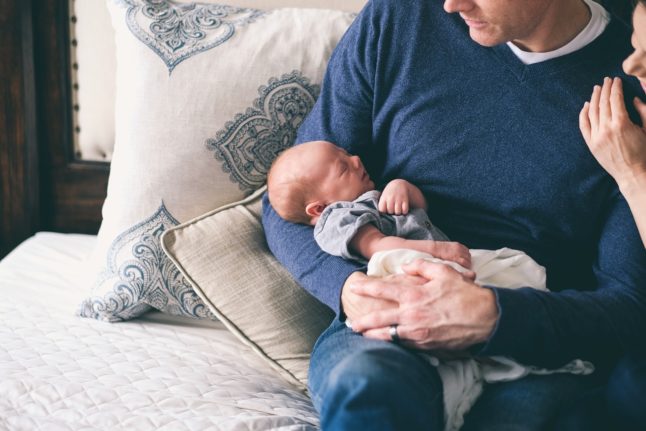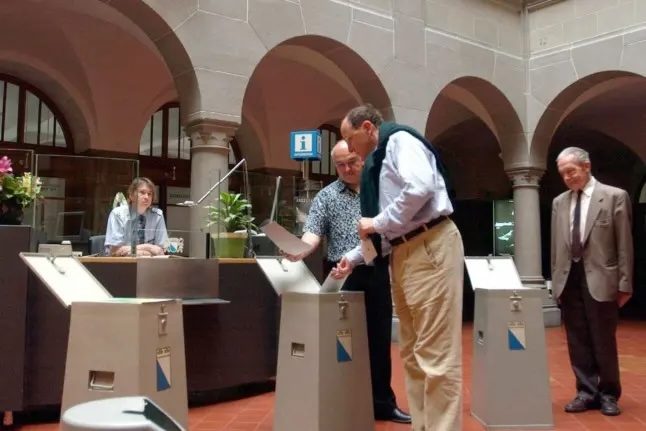Nearly 58 percent of the canton’s voters on Sunday June 18th greenlighted the proposal put forward by the Green Liberal Party to grant new parents a paid leave that is six weeks longer than the current (cumulative) period allowed by the law (read more about this below).
“It is an immense joy, a historic progressive step,” Aurélien Barakat, president of the Geneva Green Liberals, said on social media after the results of the vote emerged.
However, the new legislation must still be approved by the parliament during its autumn session, so the victory at the polls is still tentative at this point.
#CHvote – Aurélien Barakat, président des Vert’libéraux-Genève: «C’est une immense joie, c’est un #progrès progressiste historique, puisque Genève devient le premier canton à instaurer un #congéparental, comme il avait été pionnier avec l’assurance maternité."
— Tribune de Genève (@tdgch) June 18, 2023
What would the new law provide for?
In short, it would give new parents in the canton — including homosexual couples and adoptive parents — more time at home with their baby.
Currently, Geneva mothers get 16 weeks of leave (versus 14 weeks provided for by federal law), while fathers benefit from two weeks — the same period as in other cantons.
Under the new law — should it be accepted by the parliament — new parents will benefit from six more weeks at home with their baby.
This leave can be taken either at the same time by both parents for a total of 24 weeks for the two, or one of the parents can grant two weeks of their own allowance to the other, by mutual agreement. In other words, this scheme allows some flexibility.
These additional weeks are to be financed by a joint contribution from employees and employers.
Not everyone, however, is happy about the vote’s results.
“With the approval of this constitutional provision, the purchasing power of the population will decline due to the increase in joint contributions,” toward the parental leave, the Geneva section of the right wing Swiss People’s Party (UDC) said in a statement.
What is the situation elsewhere in the country?
Parental leave allowances in Switzerland are lagging behind many other European nations.
The reason is that the country has a strong history of individual responsibility, which promotes the idea that the state (or employer) should not pay for people choosing to have children.
Mothers here are entitled to 14 weeks leave and fathers to two.
During the 14-week (or 98-day) leave of absence, mothers in Switzerland are entitled to be paid 80 percent of their salary, up to a maximum of 196 francs a day.
But while the paid maternity leave was established in Switzerland in 2005 — years later than in the EU — fathers had to wait much longer to get that same (though more time- limited) right.
That changed on September 27th, 2020, when 60 percent of Swiss voters decided in favour of a two-weeks paternity leave.
As far as compensation, fathers can receive a maximum of 2,744 Swiss francs during their two weeks of leave with the money to be paid under the state-run compensation scheme.
READ ALSO: What parental leave are new parents entitled to in Switzerland?
All this shows why Geneva’s move is truly pioneering for Switzerland, although it is still far behind the benefits accorded to new parents in other countries — in France, for instance, new mothers are entitled to receive up to 26 weeks of leave, and in Sweden both parents can benefit from 480 days off.



 Please whitelist us to continue reading.
Please whitelist us to continue reading.
How do small businesses in Sweden survive this? If they have one or two key employees, and one of them goes off for a year and a half every time they have a child. They probably avoid employing women of child bearing age at all costs.